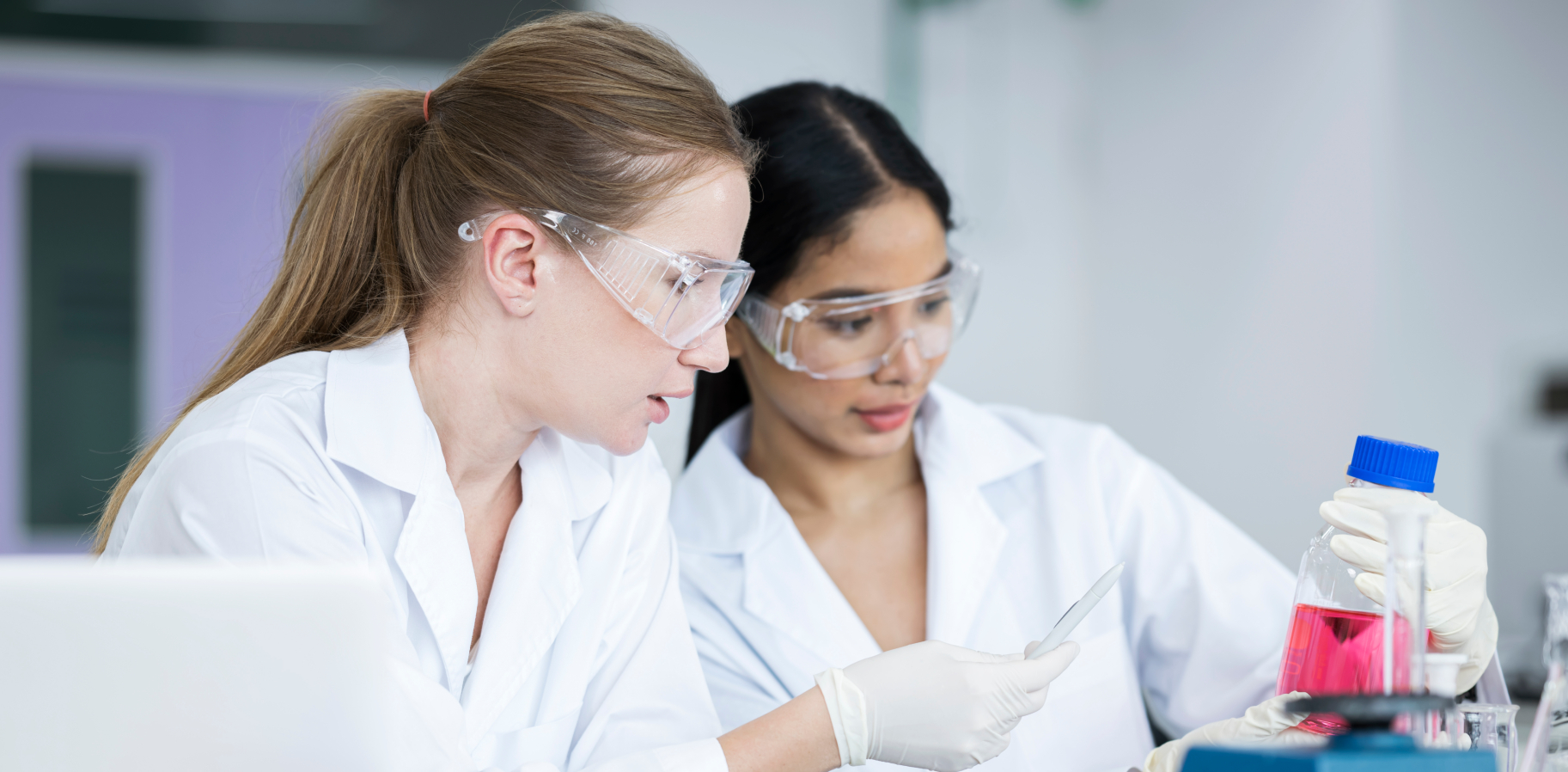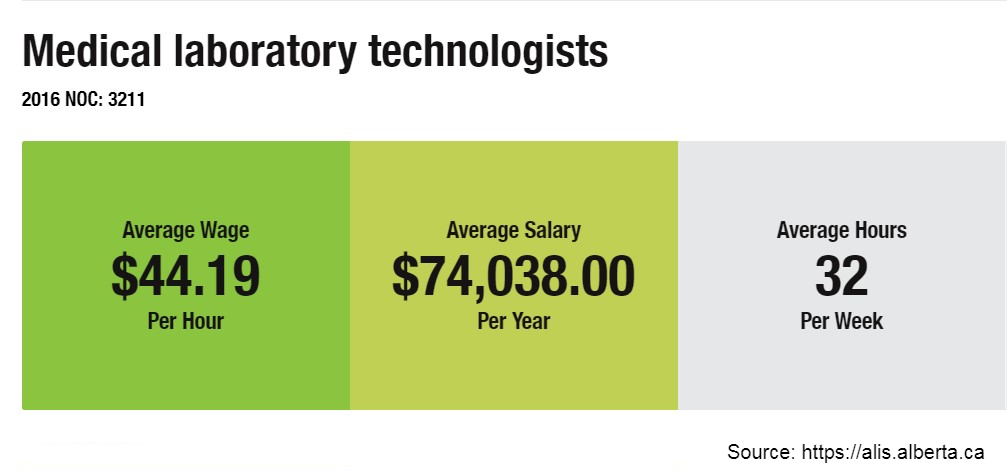Medical Laboratory Science

Upcoming In-Person Program Info Session: Wednesday, October 30, 12 pm - 1 pm.
Register Now!
Do you have a passion for science?
Are you a natural problem-solver?
Like medical detectives, medical lab technologists (MLTs) analyze biological clues, solve complex problems and report their findings. Major decisions about a patient’s medical care are based on clinical tests performed by MLTs.
MLTs enjoy a great-paying career with excellent work-life balance, high demand across Canada and the potential to live and work in the USA and abroad.

The University of Alberta’s Medical Laboratory Science (MLS) program is your passport to fascinating jobs in laboratory science.
Laboratory techniques are constantly evolving. Graduates enter the workforce with in-demand skills. You will be valuable to hospitals, universities, veterinary clinics, biotech companies, pharmaceutical companies, research institutes and more.
If you enjoy investigating problems and have strong abilities in science and technology, the MLS program could be for you.
Inside the program
Students in the MLS program are part of a small student cohort, allowing them to make friends, build relationships with professors and have experiences that last a lifetime.
You will gain hands-on experience in lab techniques and learn to analyze results, develop critical thinking skills and carry out research.
You’ll learn about human health and disease through coursework in clinical chemistry, genetics, toxicology, histotechnology (pathology), hematology, medical microbiology, immunology, transfusion science and quality assurance.
You’ll also learn to work in teams and collaborate with fellow health-care professionals.
As an MLS graduate, your transferable skills will make you employable not only as a medical lab technologist but also as a research technologist, a biotechnologist, an environmental technologist and a food technologist. Opportunities for advancement include management, teaching, marketing and research positions.
Interested in travel and living abroad? You’ll be eligible to write certification examinations for the American Society of Clinical Pathologists (ASCP) in the United States. U of A MLS grads are prepared to work anywhere in the world.
This program also well-prepares students for other professional programs and graduate studies.
Graduates have a high acceptance rate for medicine, dentistry, law, public health and masters programs.
What does a medical laboratory technologist do?
Medical laboratory technologists perform tests on blood, body fluids, and tissues and report their findings to other healthcare professionals.
These tests help diagnose and treat cancer, diabetes, liver and kidney disease, drug poisoning and many other conditions.
As an important part of the medical health-care system, MLTs contribute to patient care and can help save lives.
MLTs use their biomedical expertise to:
- collect biological samples
- prepare tissue specimens to be examined under a microscope
- check specimens for signs of abnormality or disease
- identify pathogens and determine their susceptibility to various drugs
- analyze DNA and RNA in infectious agents to identify drug-resistance mutations
- determine blood types and prepare red blood cells and platelets for safe transfusion
- identify leukemic cells so appropriate therapy can be initiated
- identify mutations associated with genetic diseases by analyzing a patient’s DNA, RNA or proteins
- monitor therapy with anticoagulants and other drugs to ensure patient safety
- verify and release results
MLTs often supervise and train technical staff, who do much of the pre-analytical lab work under the guidance of an MLT.
MLS program structure
Students apply after completing certain pre-professional courses.
Students enter into the second year where they take foundational laboratory medicine courses and have an opportunity to practice technical skills.
Year three is a clinical practicum in conjunction with Alberta Precision Laboratories in the Edmonton Zone, allowing students to demonstrate competence.
Graduates then write the MLT General certification examination offered by the Canadian Society for Medical Laboratory Science (CSMLS).
In year four, students return to campus to complete advanced electives and further sharpen their analysis and research skills.
Who can apply?
Students with the following 30 units of course weight of pre-professional coursework are eligible to apply:
- English 6 units
- General Chemistry 6 units
- Organic Chemistry 3 units
- Biology 3 units (cell biology)
- Biology 3 units (molecular genetics and inheritance)
- 3 units from Science or Math
- Statistics 3 units
- 3 units in options (any faculty)
A minimum GPA of 2.7 is required in pre-professional coursework.
When to apply
It takes time to gather documents and complete an application. Start yours early!
The application deadline for this year is April 1, 2025.
Questions?
Email us at medlabsc@ualberta.ca or call 1-780-492-6601.
Alumni videos
Related stories
Convocation spotlight: Medical Laboratory Science '23 grad Jessica Liu
Convocation spotlight: Medical Laboratory Science '22 grad Maria Shahid